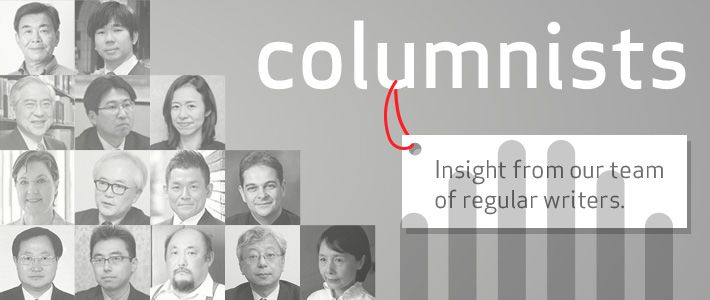
Remembering 1951
Politics- English
- 日本語
- 简体字
- 繁體字
- Français
- Español
- العربية
- Русский
Sixty years ago, on September 8, 1951, Prime Minister Yoshida Shigeru delivered an address in San Francisco. Since it is short, let me quote it in full:
I am happy that this Japanese-American Security Pact has been concluded this afternoon on the heels of the signing of a Japanese peace treaty this morning.
That treaty gives Japan the key for re-entering the community of nations as a sovereign equal. This pact insures the security of the unarmed and defenceless Japan.
It has always been my conviction that Japan, once she regains liberty and independence, must assume full responsibility of safeguarding that liberty and independence. Unfortunately, we are as yet utterly unprepared for self-defence. We are very glad, therefore, that America, realizing that security of Japan means the security of the Pacific and of the world, consented to provide us the necessary protection by retaining her armed forces in and around Japan temporarily after peace so as to ward off the menace of Communist aggression which is sweeping on at this very moment close to our shores.
Restored to independence, the Japanese people will recover self-confidence as well as pride and patriotism. Our nation is now inspired with fresh vigour and zeal to shoulder their proper share in the responsibilities for the collective security of the Far East. I wish to assure the American delegates here that the government and people of Japan will cooperate gladly and wholeheartedly in the implementation of this pact. (*1)
Yoshida delivered these remarks when he attended the signing of the Japan-US Security Treaty. Reading his words today makes me want to hang my head.
Yoshida’s statement that “Japan’s security means the security of the Pacific and the world,” and that for this reason America has committed itself to the protection of Japan, makes it abundantly clear that the significance of the bilateral security pact has not changed at all over the past 60 years.
An Ongoing Failure to Live Up to Yoshida’s Hopes
As prime minister, Yoshida also promised that the Japanese people, once they had recovered their self-confidence, pride, and patriotism, would shoulder their proper share of the responsibility for the security of the Far East. Even today, this ambition has not yet been realized. It is the ongoing nature of this failure that makes contemporary readers shake their heads in despair.
Yoshida’s statement is short and succinct. Nevertheless, these few simple lines—likely written by Yoshida himself, or at least by someone close to him who was capable of conveying the prime minister’s feelings accurately—show clearly the wavering of his heart.
Unexpectedly prominent in the first half of the statement are words expressing a sense of Japan’s weakness and powerlessness: “unarmed,” “defenceless,” “as yet utterly unprepared.” These phrases describe the reality for Japan as Yoshida saw it.
But the strongly self-reliant Yoshida could not help declaring that Japan would surely rise again as a fully responsible actor.
When he turns his attention to conveying this message in the second half of his statement, Yoshida’s tone suddenly changes, and his choice of words reveals hidden strength. By alluding to “the menace of Communist aggression which is sweeping on at this very moment close to our shores,” he eloquently expresses the resolute awareness of a prime minister at a time of quasi-belligerence (with the Korean War still going on), after which he cannot resist applying terms of vigor to his own country, speaking of Japan’s “self-confidence,” “pride and patriotism,” “fresh vigour and zeal.”
In the years that have passed since then, however, Japan has failed to mature as Yoshida hoped. Instead, it has shirked its responsibility, believing that there was a “free lunch” somewhere to be found. At some stage, the country allowed itself to forget the acute sense of pain that Yoshida must have felt, even as he marshaled his best words of bravado as the leader of a powerless country.
Paying a Surcharge for Security
Sixty years have passed, and today the main threat comes from China. US bases from Misawa to Kadena, and even as far away as Guam, have become vulnerable, lying within range of China’s short- and medium-range missiles. The arena of great-power rivalry is shifting to the seas, encompassing a vast area from the Indian Ocean to the Western Pacific. The US bases in Japan can hardly be said to lie on the frontlines of this new marine theater.
The time is coming when we will need to pay a premium if we want to continue to rely on the insurance that the US forces provide. At the same time, the Japanese Self-Defense Forces, in addition to their mission of protecting Japan’s land and territorial waters, must also be prepared to assume responsibility for the safety of maritime traffic, operating out on the high seas far from home. Cooperation with countries like Australia and India will be vital.
It is time for us to make Japan into a country that finally takes “full responsibility” for safeguarding liberty and independence, just as Yoshida promised. I understand that this was part of the ambition that originally inspired Noda Yoshihiko to become a politician. Now that he has risen to become Japan’s prime minister, I hope that Noda will bring to mind the lonely figure of Yoshida Shigeru as he accepted the burden of responsibility at the signing of the Japan-US Security Treaty 60 years ago, and that he will remember the sense of mission that started him down his own road to high office. (September 16, 2011)
(Originally written in Japanese.)
(*1) ^ Unedited English text taken from Gaimushō Jōyaku-kyoku Hōki-ka, “Heiwa jōyaku no teiketsu ni kansuru chōsho VII.”
United States Japan-US Security Treaty security Yoshida Shigeru San Francisco national defense patriotism US military bases Misawa Kadena Guam Pacific Ocean China Australia India